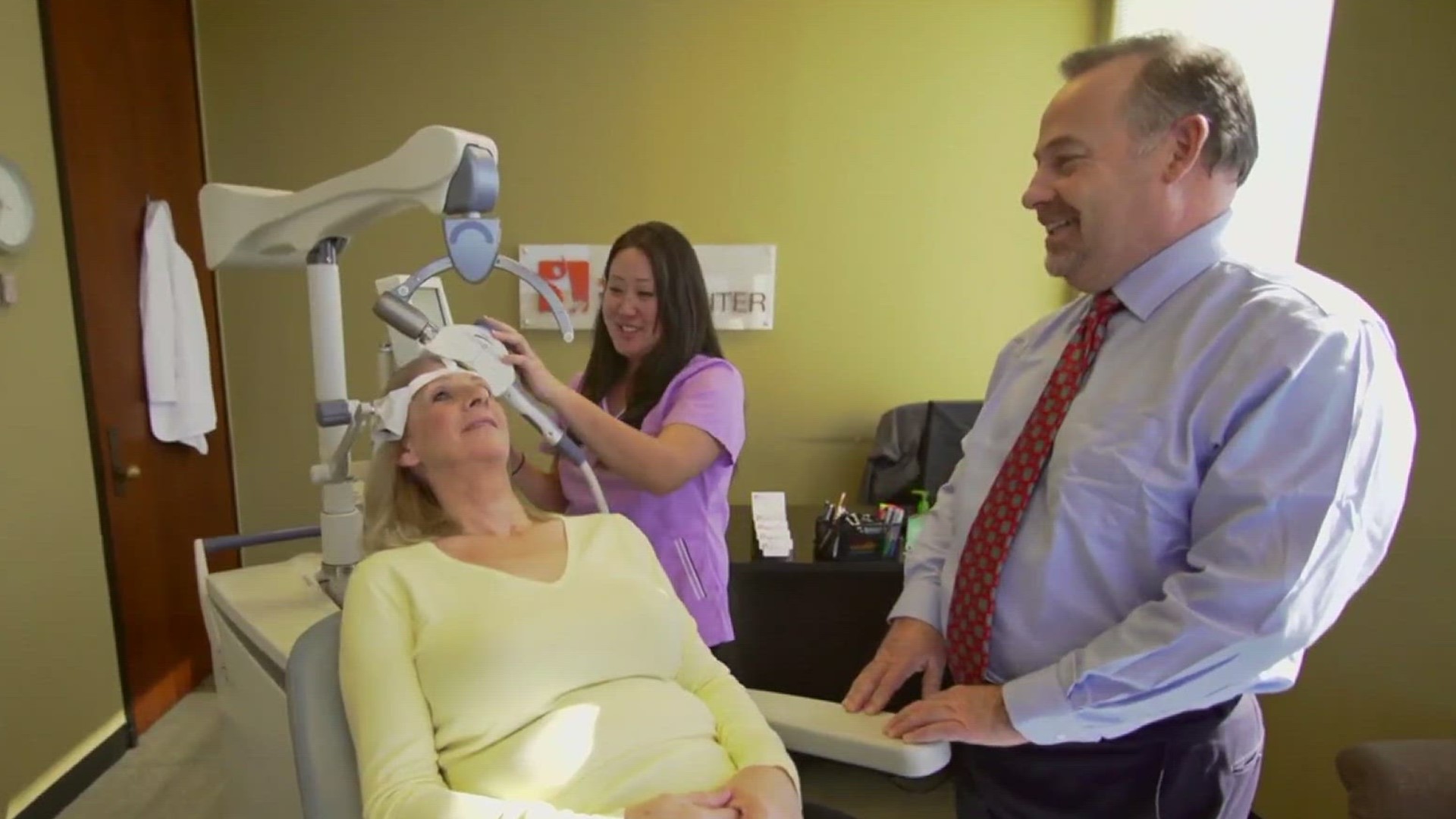YORK, Pa. — Depression affects millions of people in the United States every year. It can be so severe it becomes life-threatening.
A newer, noninvasive treatment called TMS therapy is now offering hope for people who suffer.
The tapping of a simple machine has the power to tap into someone's brain to treat depression. Just ask 25-year-old Sierra Johnson.
"I have been dealing with depression since I was 11, and I was officially diagnosed when I was 12," Johnson said. "I felt very lonely; I was ashamed of the depression; I felt really sheltered, and I just wanted to keep myself isolated from everyone and everything as a kid."
After years of trying medications with no success, she heard about transcranial magnetic stimulation, or TMS.
"The way they first described it to me, I was like 'this sounds scary,' but it's really not because you're sitting in a chair, you're not strapped to the chair, there's no intimidating room—it's very comfortable," Johnson said.
In fact, after about six sessions, she was able at points to doze off during treatments.
The FDA approved TMS in 2008 for the treatment of severe depression.
"It's good for people that have usually tried antidepressants and have not been successful with them," said Dr. Ken Rogers.
The vice president and chief medical officer for WellSpan Philhaven says a magnetic pulse stimulates brain tissue that is underperforming. In other words, brain cells that have been sleeping are awakened, which in turn boosts chemicals that are deficient in the brain like serotonin and dopamine.
"So the goal is that over time, those areas are being stimulated and allows the depression to actually lift," Dr. Rogers said.
Patients go five days a week for sessions that are less than 20 minutes, and thanks to minimal side effects, they can even drive themselves. Most people must do at least a 30-day treatment.
"They do that for several weeks and then you're feeling better about 83% of the time," Dr. Rogers said.
It's something Johnson definitely experienced.
"My attitude has improved, my relationships have improved, I'm more in touch with my emotions," she reflected. "I'm able to go out in public and big crowds and not be nervous. I'm able to actually enjoy daily activities, so it's really improved my life, and I never thought it would, but it did."
Most insurances cover this treatment.

